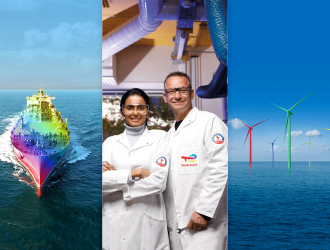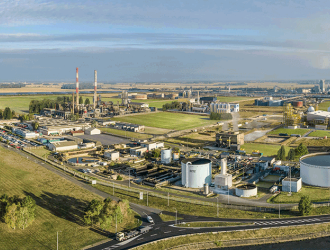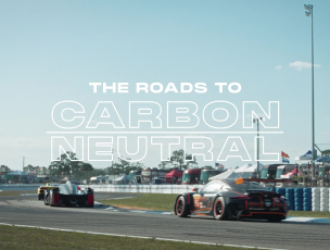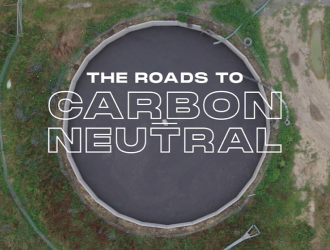The energy transition also involves the development of low-carbon energies, based on the transformation of biomass or the production of synthetic molecules (e-fuels) combining hydrogen and CO2 as raw materials. TotalEnergies is developing these new energies.
Biofuels
Today, biofuels emit less than 50% more CO2e* than their fossil fuel equivalents over their life cycle, so they represent a way of decarbonizing liquid fuels. Demand is strong, making this a highly profitable market, but access to raw materials remains a barrier to growth.
Among these biofuels, TotalEnergies favours the manufacture of Sustainable Aviation Fuel (SAF) to decarbonize the aviation sector, while the road sector has other options besides biodiesel to decarbonize, in particular electricity.
To avoid land-use conflicts, TotalEnergies is developing solutions based on the priority use of waste and residues from the food industry. As for the agricultural raw materials used, they comply with sustainability and traceability requirements: carbon footprint, non-deforestation, and good land use.
TotalEnergies has set itself the target of increasing the proportion of circular feedstocks (waste oils, animal fats) to more than 50% of the feedstocks used to produce biofuels by 2025. The Company has also stopped sourcing palm oil.
Biogas
Biogas, produced by the degradation of organic waste, is a renewable gas composed mainly of methane. Compatible with existing gas transport and storage infrastructures, it has an important role to play in decarbonizing the use of gas products (power generation, heating).
To this end, the Company is forging strategic partnerships with players in the agricultural, waste and wastewater treatment sectors to develop growth platforms in Europe and the United States.
Hydrogen
TotalEnergies' priority is to decarbonize the hydrogen consumed in its European refineries by 2030, which should reduce CO2 emissions by 3 Mt/year by 2030.
Synthetic fuels
In the future, using CO2 as a raw material will help to decarbonize certain transport sub-sectors to an even greater extent. The captured CO2 can be used, in reaction with green hydrogen, to produce fuels or synthesis gas. TotalEnergies is positioning itself in this market by developing pilot units.
* CO2 equivalent








